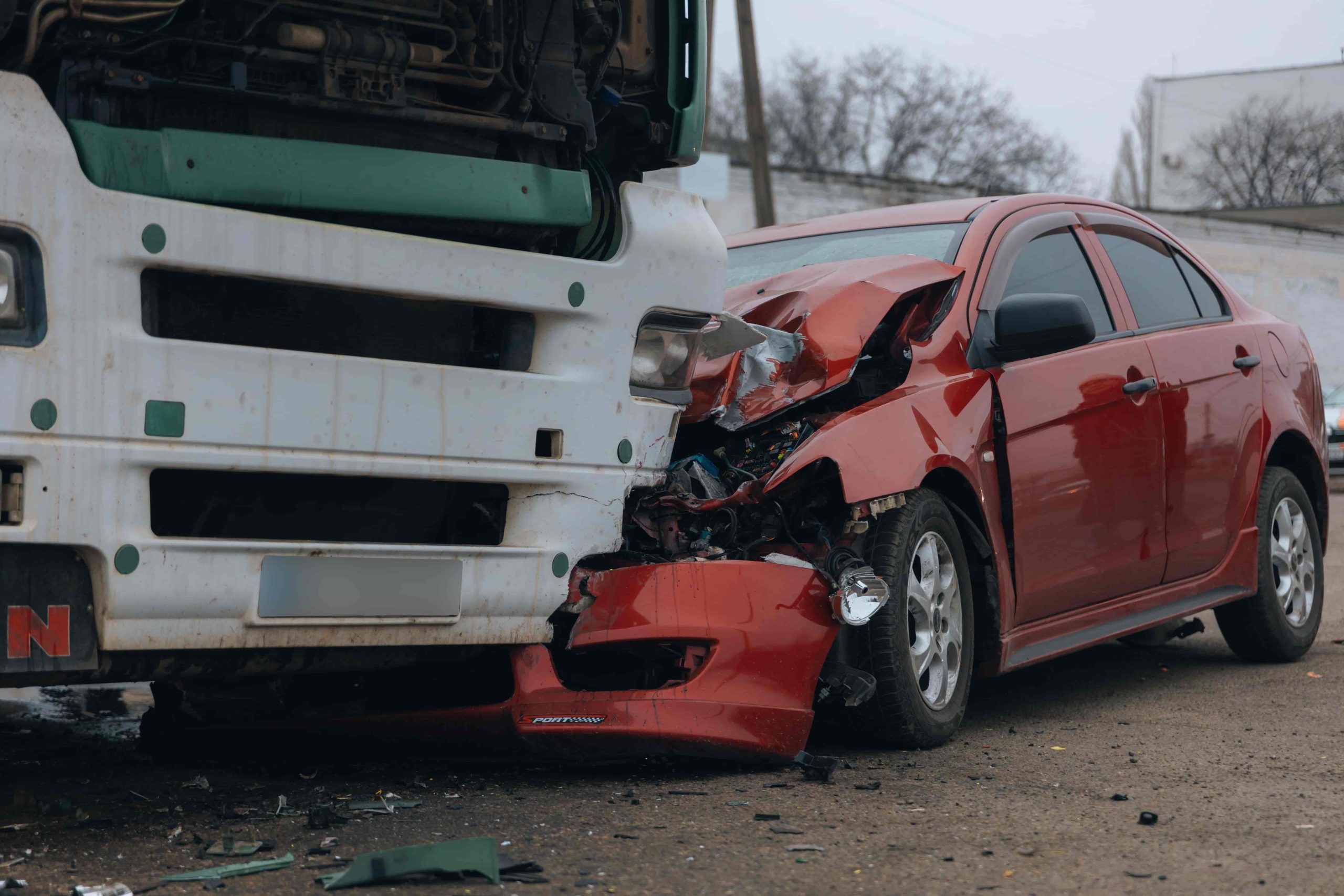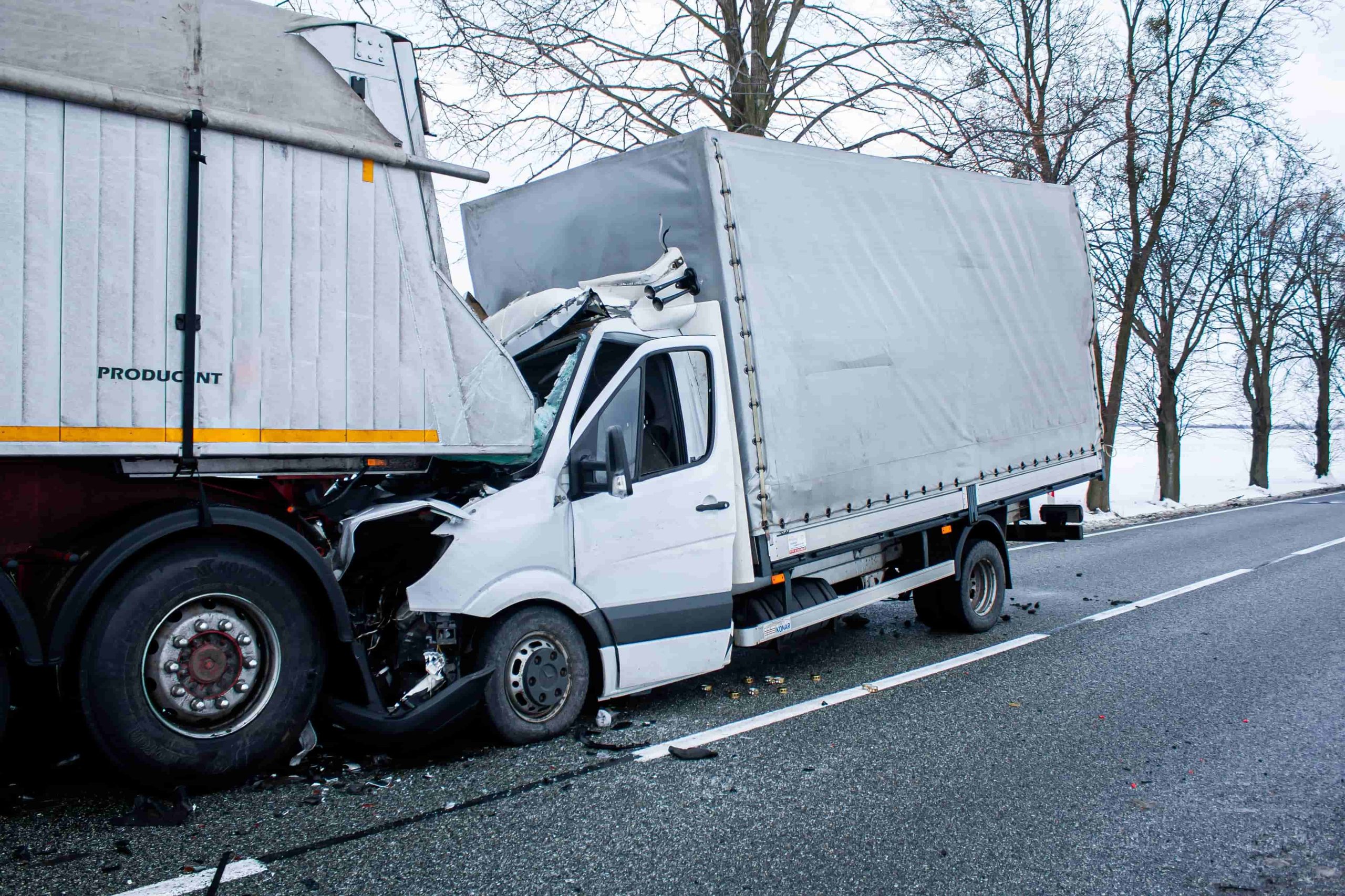Liability for a truck accident can extend far beyond the truck driver. In many cases, the trucking company may be held responsible for unsafe hiring practices, poor training, or pressuring drivers to break safety rules. Cargo loaders may share liability if they fail to properly secure or balance the load, while manufacturers can be accountable for defective truck parts. Even government agencies or contractors may be liable if unsafe road conditions contribute to the crash.
Because truck accidents often involve multiple parties and complex regulations, proving liability can be challenging. A skilled truck accident attorney can investigate the crash, gather key evidence, identify all responsible parties, and negotiate with insurance companies. Their guidance helps victims pursue maximum compensation and justice for their injuries.
Key Takeaways About Liability in Truck Accidents
- Multiple parties may be liable – Responsibility is not always limited to the truck driver. Trucking companies, cargo loaders, parts manufacturers, and even government agencies may share fault.
- Driver negligence is only one factor – Speeding, fatigue, or distraction can cause crashes, but unsafe company practices, poor maintenance, or overloaded cargo often play a role.
- Evidence is critical – Police reports, witness statements, black box data, and maintenance records are key to proving how and why the accident happened.
- Liability impacts compensation – Identifying all responsible parties increases the chances of securing the full financial recovery victims need for medical bills, lost income, and pain and suffering.
- Legal guidance is essential – Truck accident cases are complicated, and trucking companies often deny fault. Speaking with a skilled truck accident lawyer as quickly as possible is the best way to protect your rights.
How Do Negligent Truck Drivers Cause Accidents?

Truck accidents often result in devastating consequences, and many of these collisions occur because truck drivers act negligently behind the wheel. Given the size and weight of commercial trucks, even a single mistake can create life-threatening risks for others on the road. There are several common ways negligent truck drivers cause accidents.
Distracted Driving
One of the leading causes is distracted driving. Just like other motorists, truck drivers sometimes text, talk on the phone, eat, or adjust navigation systems while driving. Because trucks require much longer stopping distances, even a moment of distraction can make it impossible to react in time to avoid a collision.
Driver Fatigue
Another frequent cause is driver fatigue. Truck drivers often work long hours under strict delivery deadlines, which can lead to drowsy driving. Fatigue reduces reaction time, lowers alertness, and in some cases, causes drivers to fall asleep at the wheel. Despite federal regulations limiting hours of service, some drivers and companies ignore these rules, increasing the risk of catastrophic accidents.
Speeding
Speeding and reckless driving also play a major role. When truck drivers exceed the speed limit or fail to slow down for weather or traffic conditions, they put everyone around them in danger. A speeding truck is far harder to control and much more destructive in a crash.
Improper Lane Changes and Wide Turns
Negligence may also occur through improper lane changes or wide turns. Trucks have significant blind spots, and when drivers fail to check them carefully, they can sideswipe cars or cause vehicles to be forced off the road. Similarly, turning too sharply or without signaling can trap smaller cars in dangerous positions.
Impaired Driving
Finally, impaired driving remains a serious concern. Alcohol, illegal drugs, and even some prescription medications can affect coordination and judgment. When a truck driver chooses to operate a vehicle while impaired, the consequences can be disastrous.
In each of these situations, a truck driver’s negligence creates unnecessary hazards.
How Do Negligent Trucking Companies Cause Crashes?
Trucking companies play a critical role in keeping the roads safe, but when they cut corners or act negligently, the consequences can be disastrous. Because these companies oversee vehicle maintenance, driver hiring, and scheduling, their actions directly influence whether trucks are operated safely. Unfortunately, negligence at the company level is a common factor in many serious trucking accidents.
- One of the most frequent issues is hiring unqualified or unsafe drivers. Some companies fail to properly screen drivers’ records for prior violations, substance abuse, or insufficient training. Allowing underqualified drivers to operate massive commercial trucks places every motorist at risk. In some cases, companies knowingly overlook red flags to keep their trucks on the road.
- Another common problem is improper training or supervision. Even licensed drivers need adequate instruction to handle difficult driving conditions, hazardous materials, and strict safety protocols. When companies fail to provide this training—or ignore unsafe behavior on the job—accidents become far more likely.
- Overloading trucks or failing to secure cargo is another negligent practice. Trucks that exceed weight limits or carry unbalanced loads are harder to control, more prone to tire blowouts, and more likely to tip over. Improperly secured cargo can also spill onto highways, creating dangerous obstacles for other drivers.
- Negligence also arises from inadequate maintenance. Trucks require regular inspections and repairs to remain safe. However, some companies neglect routine servicing to save money or push vehicles beyond safe limits. Brake failures, worn tires, and defective lights are often the result of poor maintenance policies.
- Additionally, pressuring drivers to violate hours-of-service rules is a widespread issue. Some trucking companies encourage or even require drivers to exceed legal driving hours to meet delivery deadlines. This directly leads to driver fatigue, slower reaction times, and an increased risk of serious crashes.
- Finally, failure to enforce safety regulations is another significant factor. Companies that ignore federal and state guidelines regarding weight limits, logbooks, or drug testing create dangerous conditions on the road.
When trucking companies act negligently in these ways, the damage often extends far beyond property loss. Innocent truck accident victims can suffer life-altering injuries, as well as devastating emotional and financial burdens.
Other Common Causes of Truck Crashes

Truck accidents are not always caused by the truck driver or the trucking company. In many cases, other parties act negligently and create dangerous conditions that lead to devastating crashes. These individuals and entities can be liable if an accident occurs, leading to injuries.
One common source of negligence comes from other motorists on the road. Passenger vehicle drivers sometimes cut off large trucks without realizing the longer stopping distances these vehicles require. Reckless behaviors such as speeding, tailgating, or weaving through traffic can force truck drivers into unavoidable collisions. Distracted driving by other motorists—such as texting or eating—also contributes significantly to accidents involving trucks.
Vehicle and parts manufacturers may also play a role. If a defective brake system, tire, or steering mechanism is installed on a truck, the malfunction can directly lead to a crash. In such cases, the manufacturer or distributor may be held responsible for placing unsafe products into circulation.
Another common form of negligence comes from cargo loaders or shipping companies. If a truck’s cargo is loaded unevenly, exceeds legal weight limits, or is not properly secured, the truck may become unbalanced, making rollovers or jackknife accidents more likely. Improperly loaded cargo that falls into the roadway can also cause multi-vehicle pileups.
Finally, government agencies and contractors responsible for road design and maintenance may contribute to trucking accidents. Failing to repair potholes, leaving debris in lanes, or not providing proper signage in construction zones can create hazards that lead to serious truck crashes.
What Are the Most Common Injuries in Truck Collisions?
Victims of truck crashes often suffer serious injuries that require ongoing medical care. Some of the most common injuries truck accident victims suffer include:
Head and Brain Injuries
One of the most serious consequences of a trucking accident is a traumatic brain injury (TBI). The force of impact can cause the brain to strike against the skull, leading to concussions, brain bleeding, or permanent cognitive impairment. Victims may suffer from memory loss, difficulty concentrating, mood changes, or even long-term disability. Head injuries often require extensive medical treatment and rehabilitation.
Spinal Cord Injuries
The violent impact of a truck crash can also damage the spinal cord. These injuries may cause partial or complete paralysis, depending on the location and severity of the damage. Victims often lose mobility and independence, requiring lifelong care. Even less-severe spinal injuries can cause chronic pain, limited movement, and reduced quality of life.
Broken Bones and Orthopedic Injuries
Because of the immense force involved, fractures are extremely common in trucking accidents. Broken arms, legs, ribs, and pelvis injuries can take months to heal and may require surgery or implanted hardware. Orthopedic injuries can also lead to long-term complications, such as arthritis or reduced strength and mobility.
Internal Injuries
Trucking accidents often result in blunt force trauma that damages internal organs. Injuries to the liver, spleen, kidneys, or lungs can be life-threatening if not treated quickly. Internal bleeding may not always be immediately visible, making it one of the most dangerous consequences of these collisions.
Burns and Lacerations
When a truck carries hazardous materials or fuel, collisions may result in fires or explosions. Victims can suffer severe burns that cause lasting disfigurement, nerve damage, and emotional trauma. Deep cuts and lacerations from shattered glass or twisted metal are also common, sometimes leaving permanent scars.
Emotional Trauma
Beyond physical harm, many victims develop post-traumatic stress disorder (PTSD), anxiety, or depression following a serious trucking accident. The psychological impact can be just as debilitating as physical injuries, often requiring therapy and long-term support.
These injuries demonstrate the devastating consequences of trucking accidents, which often alter victims’ lives permanently and require extensive medical and emotional care.
How Are Truck Accident Cases Resolved?
Settlements
The majority of truck accident cases are resolved through settlements. In this process, the injured party and the at-fault party—or their insurance provider—negotiate an agreement without going to court. Settlements often provide faster resolutions and allow victims to avoid the uncertainty and stress of a trial. The injured party typically receives a lump sum payment or structured financial compensation in exchange for releasing the trucking company and other responsible parties from further liability. Settlements are common because they save time, reduce legal expenses, and provide both sides with a degree of control over the outcome.
Trials
When negotiations fail, a truck accident case may proceed to trial. At trial, a judge or jury hears the evidence, including witness testimony, accident reconstruction, and medical reports. The court then determines liability and decides the amount of compensation. Trials can be lengthy and costly, but they may be necessary when the trucking company or other at-fault party disputes fault or refuses to offer a fair settlement. For victims, trials provide an opportunity to have their case fully presented and decided publicly. However, because the outcome is uncertain, many parties prefer to resolve disputes before reaching this stage.
Alternative Dispute Resolution (ADR)
Some truck accident cases are resolved through alternative dispute resolution proceedings, such as mediation or arbitration. Mediation involves a neutral third party who helps both sides negotiate and reach a voluntary agreement. It is less formal than a trial and can be completed more quickly. Arbitration, on the other hand, is a more structured process in which an arbitrator hears the case and makes a binding or non-binding decision. ADR proceedings are often less expensive than trials and allow for more privacy, but they still give accident victims the chance to recover compensation without the delays of a courtroom battle.
Settlements, trials, and ADR each provide different paths to resolution. The best approach depends on the facts of the case, the willingness of the parties to negotiate, and the level of dispute over liability and damages.
What Types of Damages are Available in Truck Accident Cases?

When a person is injured in a truck accident, the law allows them to pursue compensation through a claim or lawsuit. The compensation is meant to cover both financial losses and personal harm caused by the crash. In truck accident claims, several types of damages may be available, depending on the circumstances of the case:
Economic Damages
Economic damages compensate victims for their measurable financial losses. This category includes medical expenses, such as hospital stays, surgeries, prescription medications, physical therapy, and long-term care. Victims may also recover lost income if their injuries prevent them from working temporarily or permanently. Additionally, if the accident reduces a victim’s ability to earn a living in the future, they may receive compensation for lost earning capacity. Other financial losses, such as the cost of property damage or out-of-pocket expenses related to the crash, are also included.
Non-Economic Damages
Non-economic damages cover the losses that are not directly tied to money but still affect a victim’s life. These include pain and suffering, accounting for physical discomfort and the challenges of recovery. Victims may also seek compensation for emotional distress, such as anxiety, depression, or post-traumatic stress disorder (PTSD), resulting from the crash. Additionally, if injuries limit a person’s ability to enjoy activities they once loved, they may recover damages for loss of enjoyment of life.
Punitive Damages
In certain cases, courts may award punitive damages. These damages are not meant to compensate the victim but rather to punish the trucking company, driver, or other negligent party for especially malicious or willful misconduct. For example, if a company knowingly ignored safety regulations or a driver operated while intoxicated, punitive damages may be available.
By seeking economic, non-economic, and in rare cases, punitive damages, victims of trucking accidents can pursue justice and financial recovery to help rebuild their lives after such devastating events.
Frequently Asked Questions About Liability in Truck Accident Cases
Who can be held liable in a truck accident?
Liability is not limited to the truck driver. Depending on the facts, the trucking company, cargo loaders, parts manufacturers, or even government agencies responsible for unsafe road conditions may share responsibility.
How is fault determined?
Fault is proven through evidence such as police reports, eyewitness testimony, accident reconstruction, and electronic data from the truck’s “black box.” A lawyer can collect and analyze this evidence to establish how negligence caused the crash.
Can more than one party be liable?
Yes. Truck accidents are often complex, and several parties may share blame. For example, a driver may be negligent for distracted driving, while the trucking company may be liable for failing to provide proper training.
What if the trucking company denies responsibility?
Companies frequently try to shift blame or minimize their role. A truck accident lawyer can investigate company records, maintenance logs, and safety violations to uncover evidence of liability.
Why does liability matter, and how can a lawyer help?
Identifying all responsible parties ensures victims can pursue the full compensation they deserve. A skilled truck accident lawyer helps victims navigate the legal process and fight for justice.
Speak with an Experienced Truck Accident Lawyer Right Away
If you or someone you love has suffered injuries in a recent trucking accident, a skilled attorney can aggressively advocate for you. They will gather evidence, negotiate with insurance companies, and if necessary, litigate your case to a resolution in court.
